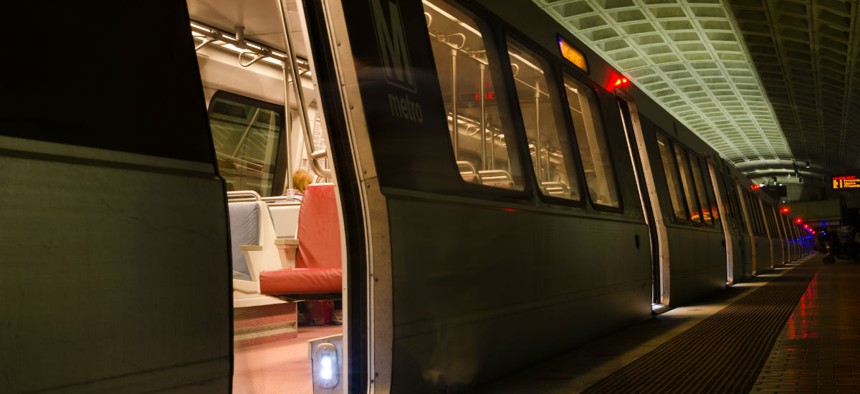
Orhan Cam / Shutterstock.com
Feds Likely to Receive First Mass Transit Benefit Boost in Two Years
Expected provision in tax package would nearly double subsidy for public transportation riders.
Federal employees who drive to work have received twice the subsidy to park as their mass transit-riding counterparts for two consecutive years, but Congress appears on the verge of changing that for 2016.
Beginning Jan. 1, 2014, the maximum benefit feds could receive for taking public transportation to work was $130 per month, while the cap on the parking perk was $250. Congress late last year retroactively raised the maximum on the transit side to match parking, but very few federal workers likely benefited from that change due to applicability rules issued by the Internal Revenue Service.
The benefit applies to all American workers who receive a transit benefit from their employers, though recipients are disproportionately federal employees. Mass transit and federal workforce advocates alike are hopeful Congress will bring parity to drivers and riders as part of a tax extenders package expected to be released in conjunction with the omnibus bill on Tuesday, this time both retroactively to 2015 and prospectively into 2016.
The parking benefit will rise to $255 next year, meaning it would nearly double the transit benefit of $130 if Congress fails to act. Congress generally approves a series of tax breaks in one bill each December, ranging from research and development incentives for businesses to the transit write off for commuters. Many lawmakers have pushed to make some of the tax provisions permanent; public transportation advocates have long called for Congress to apply parity to the transit benefit permanently.
“Purely on a public policy basis,” said Billy Terry, a senior legislative representative as the American Public Transportation Association, “it makes no sense to incentivize parking” over mass transit.
It was unclear as of Tuesday afternoon for how long the final agreement would boost the transit subsidy. A bill introduced last week by Rep. Kevin Brady, R-Texas, chairman of the House Ways and Means Committee, would have brought parity to public transportation riders through 2016. Other proposals would extend the boosted benefit for five years.
Sen. Chuck Schumer, D-N.Y., who has consistently fought to boost the transit subsidy, introduced the 2015 Commuter Benefits Equity Act earlier this year to permanently tie the benefit to the same perk provided to drivers. The bill would also allow agencies to create new programs for doling out transit subsidies, rather than relying on the current use of “transit passes.”
The transit benefit boost was first created in 2009 as part of the economic stimulus package. Congress has acted irregularly to restore the higher subsidy since the initial increase sunset. A retroactive fix was also necessary in 2012, and a fiscal cliff agreement approved on New Years Eve in 2012 raised the transit perk through 2013. The tax extenders bill passed late last year included the higher amount only retroactively. Feds riding public transportation or riding vanpools have received at most $130 per month to subsidize their trips to and from work this year.
(Image via Orhan Cam / Shutterstock.com)







